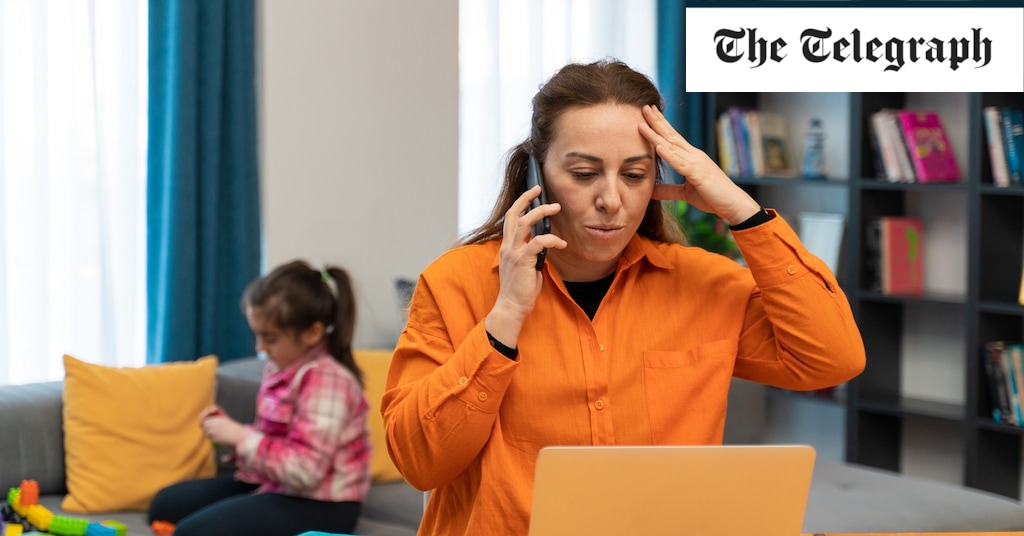Long before the pandemic, while stuck in traffic, a cabbie casually explained to me: “Thursdays are the new Fridays”. His theory was that you could go out and get drunk on a Thursday night and be hungover at work the next day and that was fine. Women, he told me, had had enough of their blokes being useless on a Saturday morning and not up to looking after the kids.
It made a certain kind of sense and now, post-pandemic, it appears to be even more true. Fridays are not for work. There are the TWaTs who only go into the office Tuesdays, Wednesdays and Thursdays and now, worryingly, many children are skipping school on Fridays, too. Apparently the average number of pupils who are not in school compared to midweek “without good reason” is up 21 per cent on Fridays. We already know there is a huge problem with “ghost children”, those who are missing education. The Children’s Commissioner estimates this at some 120,000.
I am not going to rehearse arguments about lockdown and the shutting down of schools here, but clearly we are going through a post-pandemic crisis, one that will not resolve itself by merely telling everyone to get back to school or to work. The desire to get back to normal involves a certain denial and a refusal to learn many of the lessons of lockdown: not all work is office work; not all work is fulfilling; not all work is flexible; not all work is the meaning of life. Not every part of the school day is necessary; not all of it is about “learning”; not all children like it.
Indeed, I know of lots of teenagers who, once they realised that they could go online and learn in an hour what would often take a day in school, saw little reason to go back. Mostly they did so for social reasons, but some refused. University students also realised, while they were locked inside halls of residence, that their actual tuition was two hours a week of Zoom. Some workers found that without the commute, they could achieve a lot more at home. Some, on the other hand, felt isolated with no one to bounce ideas off and became completely demotivated.
Yet, I would argue that even before all this, there was an ongoing reassessment of that mysterious idea of “the work/life balance”. Much of this was driven by women of my generation who instead of having it all, did it all. The woman with the breast pump expressing milk in the staff loo is, to me, symbolic of that time. If younger generations have decided they want more time with their children and less time at work, who can really blame them? Children don’t really care about quality time – that was the myth we comforted ourselves with – they care about the quantity of time.
During lockdown, it was again mostly women who were somehow expected to both work and home-school their kids. School was revealed as primarily childcare. Is it any wonder that children themselves implicitly understood that? If parents are at home, then why shouldn’t they be?
Punitive measures aimed at both adults and children are constant. Too many of us are not at work: we are too fat, too depressed, too anxious or we have some undiagnosed illness that gets us a sick note. Rishi Sunak says he is on “a moral mission” to get the work-shy back to work by removing their benefits. Disability groups are mortified by this.
Post-Covid, some 2.8 million are out of work because of long-term sickness. Something is going badly wrong here, I don’t doubt that, but the proffered solutions are themselves unworkable. If poor mental health is stopping those who should be employed from getting jobs, let’s not forget that we already have 1.8 million on a waiting list for treatment for mental health issues.
If mothers are finding it difficult to manage, then that is because we are seeing a huge drop in childcare provision pre-Covid. Since 2019, in the south-east, the nursery and childminder sector has lost 2,332 providers. In the north-east, there has been a 27 per cent drop in providers.
Is it any wonder that many have unofficially taken to doing four-day weeks? Circumstances have led them there and shouting at workers about productivity is not enough. Germany, Denmark and the Netherlands are all trialling four-day weeks. Some companies require 40 hours worked in that time, some far less. Even Japan – notorious for “death by overwork” – is trying it, to get people to spend more time outside work and push up their declining birth rate. Of course, all this can only be viable in certain jobs and it is difficult for small businesses. Nonetheless, this surely is the future.
So much of the discussion about work assumes that we are all salarymen in offices and can work until we are 70. This is just not the case. Work is part of life but not all of it. The bosses may not like flexible working, but wherever it can happen, it is happening. Nothing is stopping self-important workaholics from doing their 14-hour days. Go for it, guys! The rest of us, it seems, have looked at the work/life balance conundrum and, surreptitiously maybe, have chosen life.





